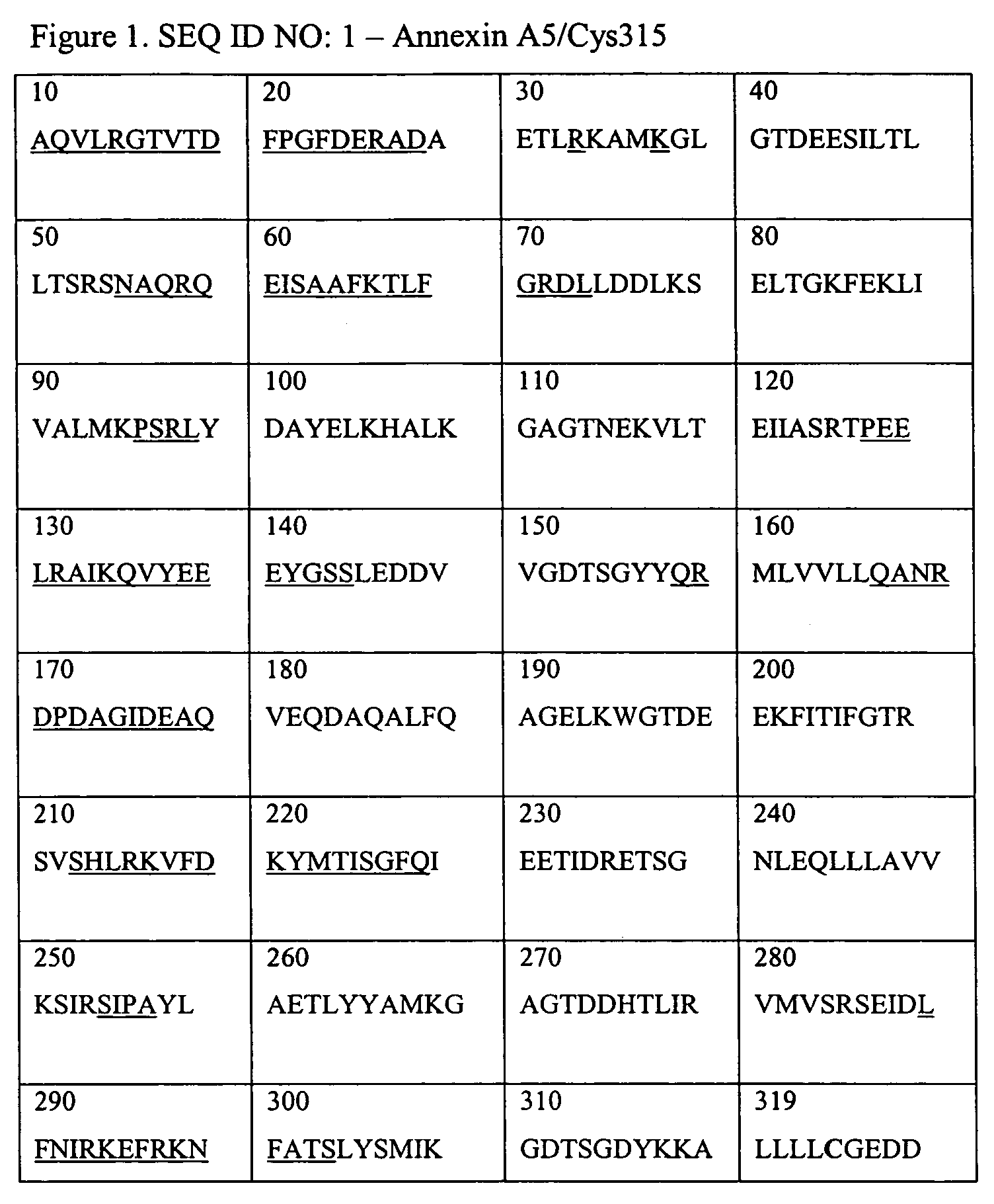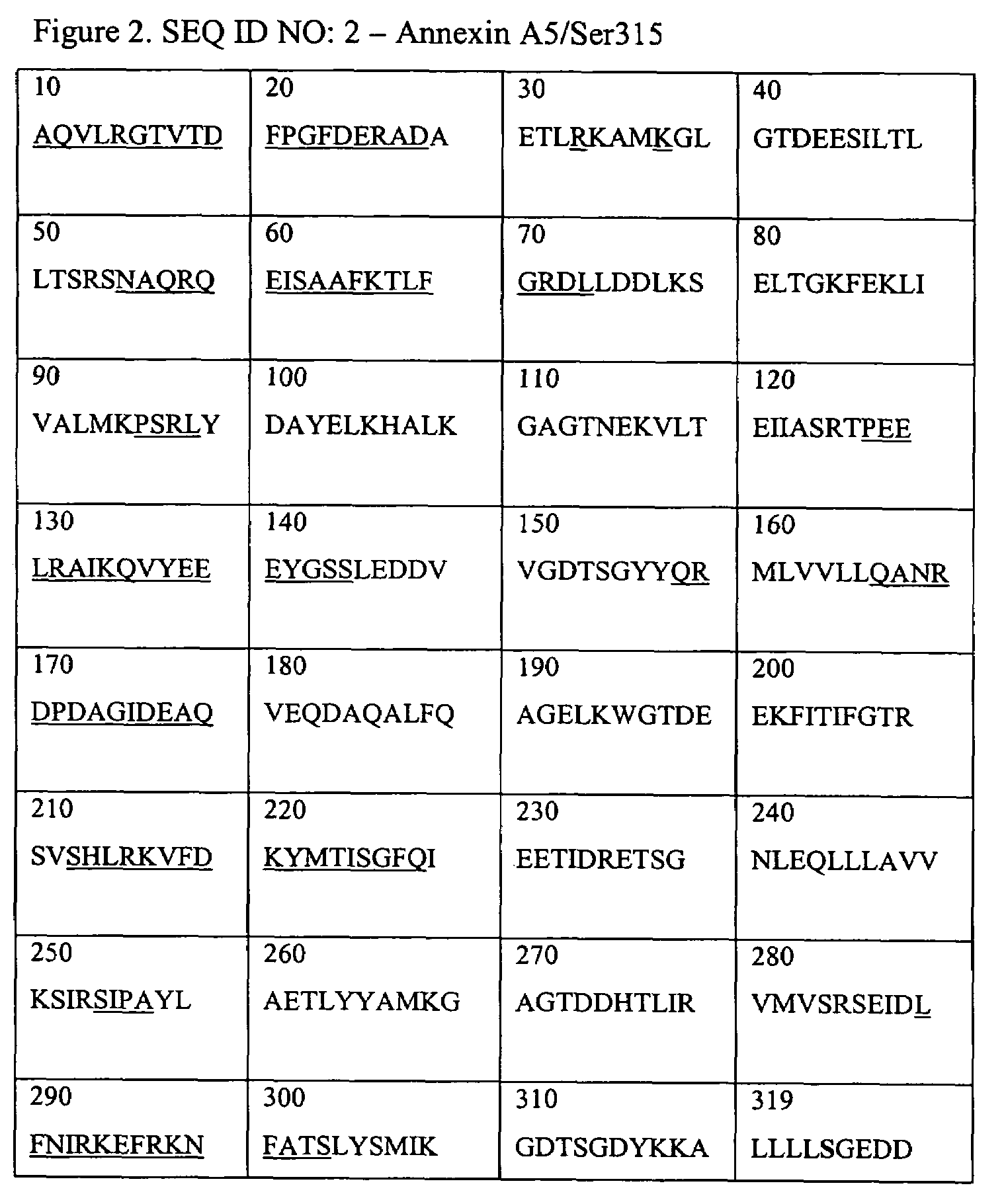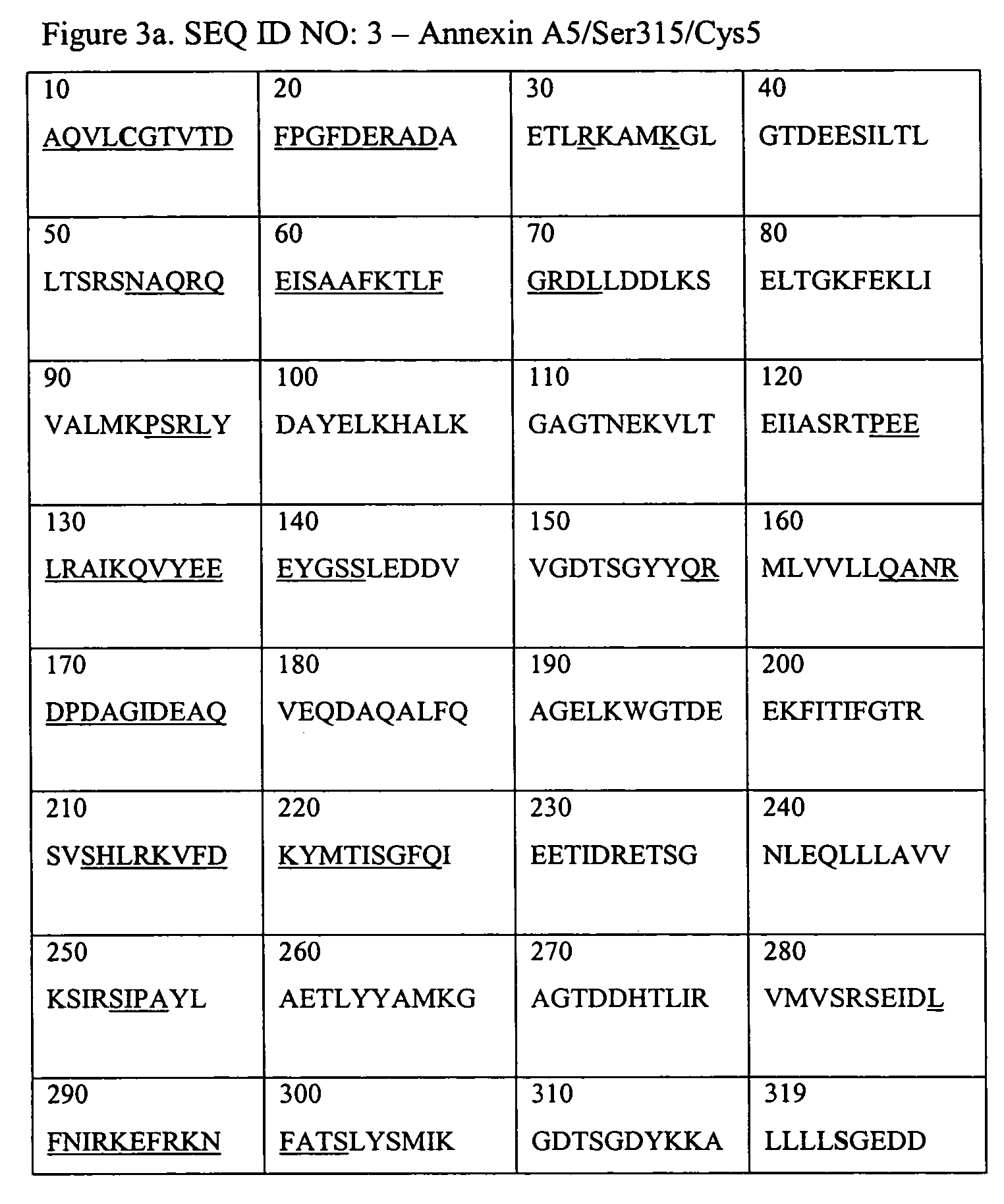Annexins, derivatives thereof, and annexin-cys variants, as well as therapeutic and diagnostic uses thereof
a technology of annexin and derivatives, applied in the field of annexins, can solve the problems of systemic dilution of compound, increase the cost of any drug, and insufficient regional delivery, and achieve the effect of facilitating internalization of pharmaceutical compound
- Summary
- Abstract
- Description
- Claims
- Application Information
AI Technical Summary
Problems solved by technology
Method used
Image
Examples
example 1
Entry of Annexin A5-FITC and Annexin A5-Alexa568 into Cells in vitro and in vivo
[0075]Annexin A5 can be purified from animal tissues as described by Funakoshi, et al., Biochemistry, 26:5572-78 (1987) or from bacteria, which are transformed with a cDNA encoding for Annexin A5, as described by Maurer-Fogy, et al., Eur. J. Biochem, 174:585-92 (1988). Fluorescent compounds can he coupled to amines of the Annexin A5 using procedures which are known to persons skilled in the art. In this example, we coupled FITC and Alexa568-succinimidylester to Annexin A5 to yield Annexin A5-FITC and Annexin A5-Alexa568, respectively.
[0076]Cultured Jurkat cells (ATCC) were activated to express PtdSer at their surface by stimulating them with anti-Fas antibody (clone 7C11, Beckman / Coulter, Mijdrecht, the Netherlands). This was done in the presence of 1-20 μg / ml fluorescently labeled Annexin A5. The Jurkat cells were analyzed for the localization of fluorescently labeled Annexin A5 by Confocal Scanning Las...
example 2
Internalization of Annexin A5 is Driven by Two-Dimensional Lattice Formation and Accommodated by a Novel Portal of Entry
[0081]Annexin A5 organizes on the phospholipids surfaces in arrays (two dimensional lattice) of trimers by protein-protein interactions (Oling, et al., J. Struct. Biol. 133:55-63 (2001)). Domains 2 and 3 are involved in the interactions within and between the trimers. In order to investigate the role of these domains we have inactivated the Ca2- / phospholipids binding function of these domains by site-directed mutagenesis of the Annexin A5 cDNA (domain 2: E228A, and domain 3: D303N according to Mira, et al., J. Biol Chem. 272(16):10474-82 (1997)). This variant, M23, was expressed in E. Coli and purified essentially according to the method described by Maurer-Fogy, et al., Eur. J. Biochem. 174:585-92 (1988).
[0082]Fluorescein-isothiocyanate or Alexa568-succinimidylester (Molecular Probes, Eugene) was coupled to the amines of M23 according to standard protocols known t...
example 3
Annexin A5 Transports Large Macromolecular Structures into the Cell
[0086]Annexin A5 induces internalization of compounds such as fluorescent compounds as was shown by Examples 1 and 2. In order to test whether Annexin A5 carries large macromolecular structures into the cell as well we constructed a variant of Annexin A5 having the Glutamine at position 2 replaced by a Cysteine and the Cysteine at position 315 by a Serine. This variant (Cys2-Annexin A5) was designed because it allows us to couple macromolecular structures to the Annexin A5 without impairing its ability to bind to PtdSer and to establish Annexin A5-Annexin A5 interactions on the cell surface. The N-terminal tail of Annexin A5 is apical to its phospholipids binding sites and does not interact with domains 2 and 3 (Huber, et al., EMBO J. 9:3867-74 (1990)).
[0087]This example describes the coupling of paramagnetic beads (1-4 μm in diameter) to Cys2-Annexin A5. Paramagnetic beads (PVE-12, Chemagen) were coated with phospho...
PUM
| Property | Measurement | Unit |
|---|---|---|
| dissociation constant | aaaaa | aaaaa |
| diameter | aaaaa | aaaaa |
| size | aaaaa | aaaaa |
Abstract
Description
Claims
Application Information
 Login to View More
Login to View More - R&D
- Intellectual Property
- Life Sciences
- Materials
- Tech Scout
- Unparalleled Data Quality
- Higher Quality Content
- 60% Fewer Hallucinations
Browse by: Latest US Patents, China's latest patents, Technical Efficacy Thesaurus, Application Domain, Technology Topic, Popular Technical Reports.
© 2025 PatSnap. All rights reserved.Legal|Privacy policy|Modern Slavery Act Transparency Statement|Sitemap|About US| Contact US: help@patsnap.com



